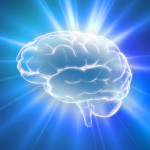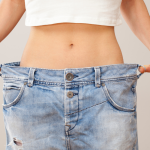Has “Dry January” made you feel more reclusive and isolated and caused you to avoid social situations? Do you feel you have to sacrifice your social life to maintain your health goals? The new year comes with many resolutions, expectations, and hopes. Dry January has become increasingly popular within the last few years, starting the year with no alcohol for January. Consuming less for health reasons and as a way to reset. If most of your social encounters include alcohol, it may be challenging to try to navigate social situations without it. The discomfort of this adjustment can lead us to avoid or create a sense of dependency on having a drink in hand when we are in social situations.
Do you already struggle with social anxiety, diagnosed or not? Alcohol is found to reduce fear of social stressors; it can even help improve some of your interactions with people with social anxiety. There is a reason why alcohol is served at social functions: why people feel lighter and freer, happier, increasing their mood and even releasing endorphins. Social anxiety is a risk factor for substance use dependence. Looking for something to get our mind off of social stressors and anxieties is natural; alcohol can be that coping mechanism.
Maybe you recognize it is difficult to make plans to make conversations at social engagements during Dry January and have the urge to leave, make an excuse, or cancel. It is expected to feel this as an adjustment. If you are used to drinking in almost all social situations, something is missing now: taking on the situation sober. There may even be peer pressure to “just have one drink” or “one night doesn’t need to count” to drink when in the situation, even if you are doing Dry January. It is easy to conform to the crowd, especially when it is something that you have had positive experiences with. Alcohol has become a social norm across many cultures and communities. We wait for the day that we are legally able to drink, we are exposed to so many cultural references to alcohol in all forms of media, we are invited to happy hours, and we are given so many choices of what to drink.
Tips on how to adjust in social situations sober
- Find a nonalcoholic drink and have it in hand! More nonalcoholic options are available. Alcohol will give you purpose, something to do with your hands, if nothing else, in a social situation.
- Find someone you can trust for peer support. This person could be with you ideally, but also someone you could text or call to confide in, helping to hold you accountable for your goals.
- Brainstorm topics to discuss beforehand. This may seem silly, but having questions in mind before social encounters can help you feel more prepared for conversations. It can also help you feel more relaxed and create a sense of purpose when engaging socially.
- Discover more sober social interaction opportunities! There are many ways to have fun without alcohol. Go on coffee dates, try ice skating with a group, take a cooking class, plan a walk with a friend or a gym date, go to restaurants that don’t serve alcohol, lean into creativity with an art class, or even go to an art gallery or museum. Finding purpose in social interactions that are not alcohol-dependent can be so helpful for social anxiety.
- Invite friends over if you have space to host, make mocktails, do crafts, make dinner, and have control of the drinks that are there.
- Write down your goals and reflect! Journaling can be powerful by putting your goals down to paper. It can also help you process your social anxieties before and after they happen to reflect on your goals, progress, and frustrations.
Being intentional after Dry January
After the month is over, there may be an urge to binge drink and continue with previous alcohol consumption. Just because you are sober in January does not mean you must be sober indefinitely; that is your choice. However, reflect on what you liked about being sober when it becomes February. Did you feel healthier? Have more energy? Were you more intentional? Even maybe saved money without spending it on alcohol. All of these factors could help to influence your consumption, decreasing your dependency and creating new opportunities to be sober and social. Alcohol can take a toll on your body physically, mentally, and emotionally, especially for moderate to more severe levels of drinking. Maybe it is time to continue to recreate your relationship with alcohol. Again, it does not have to be ended, but perhaps it can continue to be reconfigured.
When do I know if I have a bigger problem?
When you are unable to control your cravings and consumption, maybe it may be time for further self-exploration to explore your alcohol use. If alcohol causes distress and disruptions in daily life, making it difficult to live without consumption, not being able to reduce or stop your urge to drink. If you notice you are not able to perform tasks for school or work due to alcohol consumption and you have an intense urge to drink, you may have some form of alcohol dependence. Alcohol dependence is categorized by the inability to control your drinking with urges and cravings to drink. It can be mild, moderate, or severe and cause unhealthy consumption levels. It is a DSM-diagnosable condition. If you feel you are concerned with your alcohol consumption, even if you think it is mild, early treatment can be impactful.
If you feel you have an alcohol dependence and are unsure of where to start, read this blog on Overcoming Addiction. Finding support through this time can be highly impactful, including going to a support group like Alcoholics Anonymous, speaking to a mental health clinician through therapy, or even going to your primary care provider. There are many options to increase support during this time of awareness to move toward positive change.
Sources:
https://pmc.ncbi.nlm.nih.gov/articles/PMC4872611
https://www.sciencedirect.com/science/article/abs/pii/S0306460323000679
https://www.health.harvard.edu/blog/this-is-your-brain-on-alcohol-2017071412000
https://www.mayoclinic.org/diseases-conditions/alcohol-use-disorder/symptoms-causes/syc-20369243



